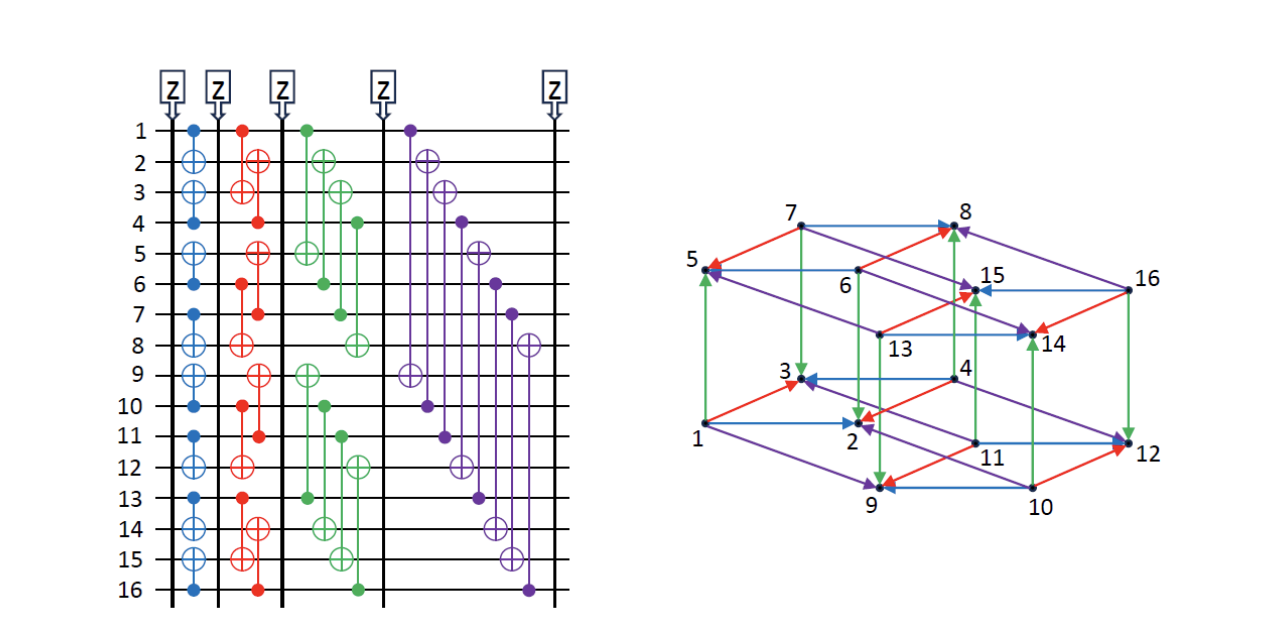Insider Brief
- IBM Quantum and IonQ researchers teamed up to reveal an alternative classical simulation algorithm for a recent quantum experiment conducted by a Harvard-led team.
- The researchers report that their classical algorithm accomplished a computational task detailed in the Harvard study in a mere 0.00257947 seconds.
- The study also reveals the complexity of benchmarking as ever-advancing quantum performance is matched with continually adapting classical algorithms.
Politics makes strange bedfellows, apparently so does quantum benchmarking.
In a surprising development, IBM Quantum and IonQ researchers teamed up to reveal an alternative classical simulation algorithm for an impressive error correction study conducted by a Harvard and QuEra team and published recently in Nature. IBM is a leader in superconducting quantum computers, while IonQ is noted as a pioneer in trapped ion devices.
The IBM-IonQ team reports in ArXiv that their classical algorithm accomplished the same computational task that was performed by the 48-qubit quantum setup in that Nature study, in a mere 0.00257947 seconds.
The quest for quantum advantage seeks to identify and demonstrate computational tasks where quantum devices unequivocally outperform classical systems. The quantum advantage pursuit is complex because of the interplay between the rapid advancements in quantum hardware and the evolving sophistication of classical simulations. The Harvard study, by Bluvstein et al., highlighted this ongoing negotiation by showcasing an Instantaneous Quantum Polynomial-Time (IQP) computation on a 48 logical qubit system, positioning it as a step toward achieving quantum advantage.
However, the IBM-IonQ work introduces a classical counterpoint to these quantum endeavors. Beyond challenging the Harvard study, their algorithm demonstrates the ability of classical computing to adapt and respond to quantum advancements. By successfully simulating the quantum task with such remarkable speed and efficiency, the algorithm demonstrates that the boundary of quantum advantage remains a moving target, susceptible to the ingenuity of classical computational strategies.
In a sentence, the work raises questions about the current benchmarks for quantum advantage.
Beyond Quantum
This classical simulation’s prowess extends beyond the 48-qubit benchmark. The team reports they have efficiently simulated types of IQP computations for systems up to 96 qubits, maintaining an impressive average computation time of about 4.16629 seconds. Their projections indicate that simulating a 192-qubit system—a scale once thought to firmly reside in the domain of quantum advantage—could be achievable using classical Tensor Processing Units (TPUs). This revelation underscores the substantial progress in classical simulation techniques and their potential to keep pace with, or even outperform, quantum systems in certain computational arenas.
According to the study, IQP circuits, alongside other quantum computation models like Boson Sampling and various quantum supremacy demonstrations, have been pivotal in exploring the frontier between quantum and classical computational capabilities. Despite their theoretical advantages, the researchers suggest that the relative simplicity of IQP circuits makes them more susceptible to efficient classical simulation strategies. This adaptability of classical algorithms suggests that achieving quantum advantage may require not just increasing the number of qubits but also enhancing the complexity and fault tolerance of quantum circuits.
The Need For More Innovation
It’s important to note that the Harvard team acknowledged that there was still work to do and predicted that studies like the IBM-IonQ study would challenge their findings, as well as point the way to new techniques and potential innovations. The team seemed to welcome the process.
In an interview with The Quantum Insider, Dolev Bluvstein, graduate student at Harvard, said that their next steps would include working on better ways to maintain the integrity of the quantum computing process.
“It’s quite daunting – and to be completely frank – it is still quite daunting,” Bluvstein told TQI. “But we have ideas in terms of how to get there and I think we have a really unique avenue with neutral atoms and these control techniques, especially in combination with the exceptional creativity and progress from across the neutral atom community.”
The IBM Quantum-IonQ research team also reported on potential modifications to the quantum circuit that could increase the difficulty of classical simulation. Their findings indicate that straightforward adjustments, such as adding or removing certain gates, have minimal impact on the complexity of classical simulations. This insight into the scalability and adaptability of classical simulations against quantum circuit modifications provides a nuanced understanding of the challenges in demonstrating quantum advantage.
In light of these developments, the paper suggests that a more promising path to quantum advantage lies in the development of comprehensive logical libraries and achieving full-fledged fault tolerance in quantum systems. Such advancements could significantly increase the computational complexity beyond the reach of classical simulations, marking a true quantum leap.
Quantum Coopetition?
As an aside, initially this may look like a scientific bums rush on the Harvard-QuEra team’s work. Hence, the strange bedfellows crack.
However, on a closer look, the collaborative effort of the researchers from IBM Quantum and IonQ — and even QuEra — does highligh the competitive landscape of quantum computing, but also illustrates the iterative and collaborative nature of scientific progress. As the race towards quantum advantage continues, this study serves as a reminder of the resilience and potential of classical computing, urging the quantum computing community to rethink the metrics and milestones of quantum advantage. And that would be good for the whole industry.
IBM Quantum researchers included Dmitri Maslov and Sergey Bravyi and IonQ team members inlcuded Felix Tripier, Andrii Maksymov and Joe Latone.

Wanda Parisien is a computing expert who navigates the vast landscape of hardware and software. With a focus on computer technology, software development, and industry trends, Wanda delivers informative content, tutorials, and analyses to keep readers updated on the latest in the world of computing.


